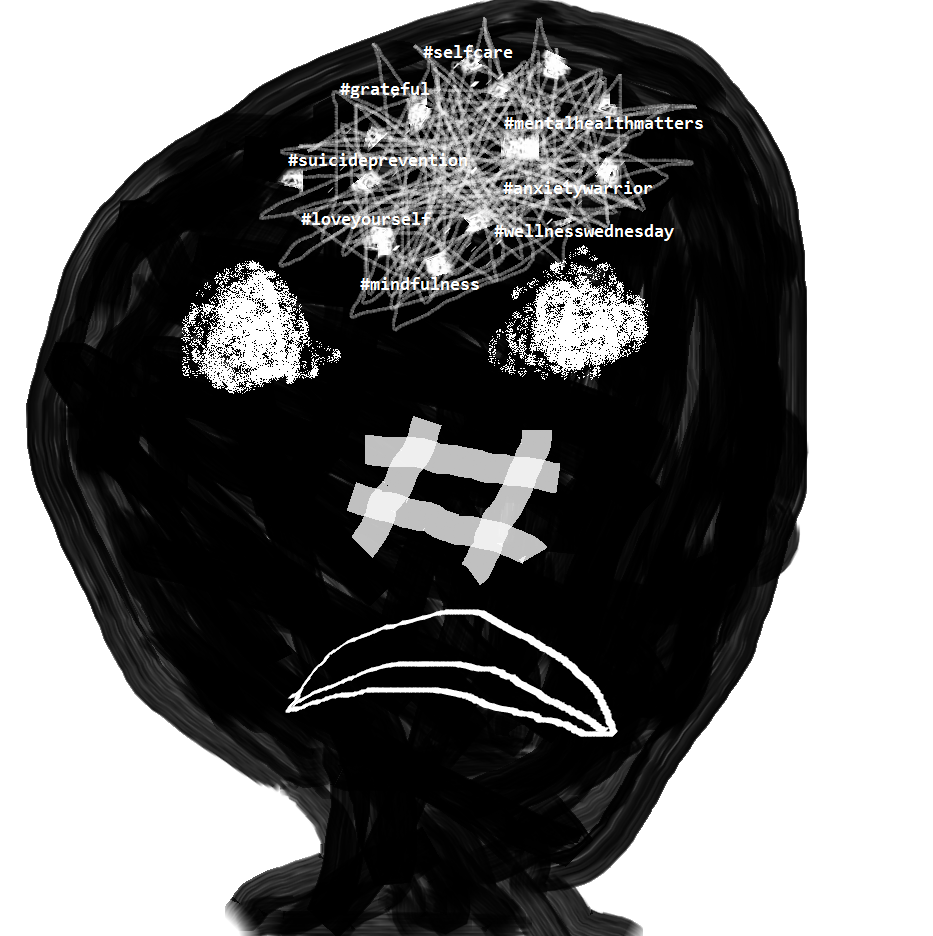
Plague of the Hashtag

Plague of the Hashtag
“Patient presents. STATES DEPRESSION IS STABLE. NO THOUGHTS OF SELF-HARM. DOING PRETTY WELL ON [redacted]. NO SIDE EFFECTS. REALLY NOT THAT MUCH EFFICACY, HOWEVER.” That is really in my medical chart, copied here caps lock and all.
It is a pretty hot take on treatment-resistant (creatively, “stable”) Major Depressive Disorder, something I feel obliged to write as a proper noun to bolster its credibility. Weirdly we call this stuff mental health, which per Twitter, university listservs, high school classroom motivational posters of breaching whales and healthcare.gov, “matters” — but mental health is either misnamed or its mistreated because many miss treatment without physical evidence of psychological pain (e.g., self-harm) or a well-formulated plan towards the end point of the physical self (i.e., suicide).
Even after acknowledging that somatic notions of the link between psychiatric illness and physical anatomy is not without some merit, I think persuading my doctor to appreciate the reality of my depression “independent of biology” (Kleinman and Good, 1985:494) would be met with less resistance if I simply throw myself in the road outside of the practice. Unfortunately, if my physical body were to be destroyed, only the Eliphazs, Bildads, and Zophars retweeting “Ask for help #mentalhealthmatters” would get the glory. So, until our actions align with our words, “mental health matters” is the mass-produced bracelet that becomes a bond. My hands feel tied — bound until they bleed.
its crazy what you have to do to get professionals to recognize the severity of things. and isn’t it odd, too? I’ve looked in the mirror before and been like “wow. I look like a normal person. why don’t I come with a warning sign?”
great piece. <3